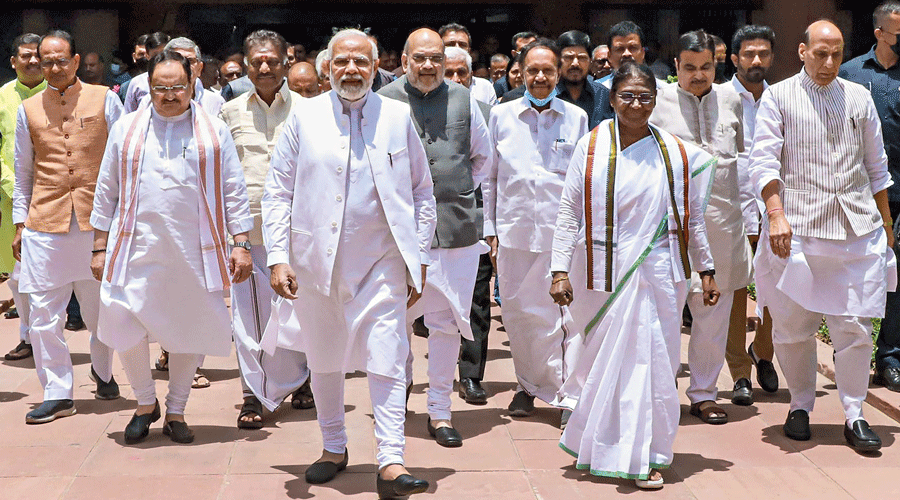India finally has its first tribal president — Draupadi Murmu, the National Democratic Alliance’s nominee for the presidential elections, sailed through smoothly. The country’s 110 million-plus heterogenous tribal population will naturally be elated. The Bharatiya Janata Party-led NDA will hope to reap some political benefit out of this move when the next general elections are held in 2024.
This, therefore, is an opportune moment to review the state of tribal affairs in the country, especially in healthcare. Let’s go back to a 2018 report by an expert committee that reviewed the status of tribal health and healthcare, the first such meaningful exercise in India since Independence. The expert committee laid out a blueprint for improving the scenario in 10 years (2018 to 2027), suggesting radical reforms in data collection, finances, institutional governance, and accountability, having examined the precarious state of tribal health and healthcare delivery during an extensive and meticulous study over five years.
The committee grappled with a lack of desegregated data, to begin with. When it collated data from different sources, such as the National Family Health Survey or State of Nutrition in Tribal India or the census, the first comprehensive picture that emerged from the nearly 700- plus tribal-dominated blocks in the scheduled areas and the 150-odd tribal districts was alarming and shameful.
Constituted by the Manmohan Singh-led government at the Centre and hosted by the ministries of tribal affairs and health and family welfare, the committee was chaired by Abhay Bang — the founder of SEARCH and a globally-renowned expert on community, especially tribal health — and included renowned practitioners and experts in the subject from all around the country.
The period between 2012 and 2013 was when India showed a remarkable decline in key health indices — the Infant Mortality or Maternal Mortality Rate — among the non-tribal populations, but that was not the case for the tribal population. This is because, as the committee said in its report, tribal India lagged behind others owing to its peculiar socio-economic, cultural, geographical and demographic characteristics that define the outcomes of health. The committee suggested that tribal health and healthcare would need an approach different from that for the non-tribals.
Five years on, the report gathers dust. The Narendra Modi government, which has hailed the election of Murmu as the head of state, has not implemented any of the recommendations, even though it accepted the report in toto. While the Centre, under Modi, believes in political symbolism, it must walk the talk by genuinely bringing in the key reforms that this expert committee suggested to radically upgrade the sagging tribal health and healthcare delivery systems.
Tribal populations carry a disproportionately high disease burden, the report said, calling it the “triple burden of diseases”. Their health status has significantly improved over the past 25 years and, yet, it remains the worst when compared to other social groups. In addition to the old ills such as communicable diseases, the tribal people are witnessing the emergence of non-communicable diseases and mental health disorders. The committee found that healthcare services in tribal areas, apart from being inadequate, also suffer from major design problems of inappropriateness and lack of local participation. To bring the tribal health scenario on a par with non-tribal groups, the committee suggested, after broad consultations with states, a new design and a new framework of governance as well as how to finance a new tribal health plan and bring about accountability and efficiency in the systems. To begin with, the tribal president could ask the Modi government to act, rather than talk — and fast.










